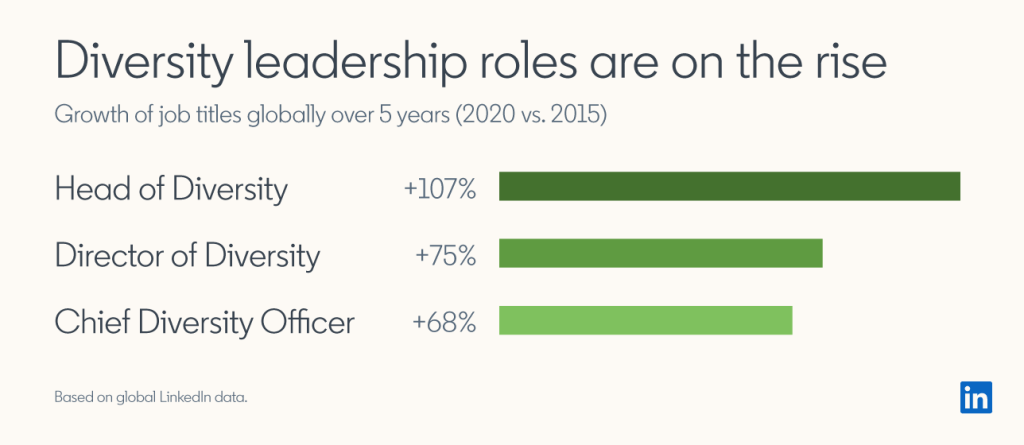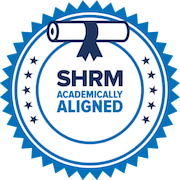NEW
Online Master of Science in Diversity, Equity, and Inclusion Leadership
Admission is open!
GCNYC is not accepting applications for Fall 2024. An announcement for admission in 2025 is forthcoming.
Have questions?
Make an appointment with our admissions team!
Time to Complete Degree
Part-time: 18 – 24 Months
Full-time: 16 – 18 Months
About This Program:
Careers in DEI Leadership

Potential titles for graduates may include:
- DEI Program Manager
- DEI Consultant
- DEI Specialist
- Assistant/Associate Director of Diversity and Inclusion Initiatives
- Assistant/Associate Dean of Diversity and Inclusion
- Executive Director of Diversity and Inclusion
- Chief Diversity Officer
- Chief Culture Officer
- Global Head of Diversity and Inclusion
- Vice President of Talent, Inclusion, and Workplace Culture
90%
of graduates advanced in career or pivoted to a career in social impact/sustainability
97%
are employed or starting a business in fashion/social impact/sustainability
Your Professors are Scholars + Practitioners in Their Field
Making Impactful Education Affordable
90% Get Scholarship
33% Less Expensive
Alumni Spotlight
We made our programs convenient and affordable so they could be accessible to the busiest and most ambitious students. We’re cultivating a hard-working community that demands excellence from each other as we drive real change.
Course Details
Program Structure
8
Courses
36
Credits Earned
Courses & Curriculum
Participating in a research-based curriculum, students in the program will write master’s theses designed to address real-world challenges, collaborating with partner companies and organizations. Thesis partnerships are facilitated by GCNYC’s Center for Social Impact and Innovation, which provides a support network and collaborative research opportunities for students, social entrepreneurs, and leaders in sustainability across industries.
Online
The MS in DEI Leadership is a fully online program with a combination of weekly synchronous classes plus independent asynchronous work.
Foundations for DEI Leadership
This seminar-based course is designed to document and explore the history and growth of the diversity, equity, and inclusion (DEI) profession against the backdrop of recent national and global events that have served as a lever for the modern DEI social justice movement. This course will acquaint students with the foundational concepts of diversity, equity, and inclusion (DEI), [in addition to key terms such as anti-oppression, belonging, and justice] including key classical and contemporary theories influencing DEI leadership, research, and practice. (3 credits)
DEI Proseminar
This course connects students directly with leading practitioners of DEI research, leadership and administration. Through guest presentations from a variety of DEI professionals working in the non-profit, private/corporate, K-20 education, and public sectors, students will become acquainted with the range of burgeoning career options available in the DEI space. Students will engage in dynamic discussion, readings, and writing assignments in order to understand the current challenges and promise of working in the DEI field. (1.5 credits)
The Inclusive Workplace
Students will explore ideas, best practices, and emerging paradigms shaping diversity, equity, and inclusion (DEI) in the corporate/business sector. This course provides an intersectional perspective to the study of DEI leadership from a globalized view. Students will examine the necessary tools business leaders need to disrupt inequitable systems and structures that pervade a variety of workplace settings. (3 credits)
Leading for Educational Equity
This course will address the current debates and controversy surrounding equity across the K-20 educational landscape. Students will explore a variety of issues, including but not limited to: critical race theory, measuring culture and climate, recruitment and retention efforts, identity development, diversifying the curriculum, social justice standards, assessing the educational impact of diversity, and current challenges to K-12 and higher education policy. (3 credits)
The Chief Diversity Officer
Moving beyond the core job functions of a Chief Diversity Officer (CDO) or the required steps needed in order to attain this senior-level position, this course provides a critical examination of the nuances and complexities of the CDO occupation. Students will trace the origins and evolution of the position since the 1970s, and explore how the CDO role has emerged as one of the most visible and in-demand roles in many organizations today. Additionally, students will become acquainted with the challenges and opportunities facing CDO’s today (with guest CDO speakers) and put them in position to conduct strategic diversity plans and other CDO activities that are critical to business strategy today. (3 credits)
Program Evaluation through the Diversity, Equity, and Inclusion Lens
Program evaluation involves a systematic approach to assessing the value and effectiveness of a program or initiative. This course provides an in-depth examination of the foundations, methods, and relevant issues in the field of evaluation. With an emphasis on an embedded approach, students will learn the basic tools necessary to conduct effective evaluations that foster continual improvement and enable data-based decision making. This course will approach program evaluation from the Equitable Evaluation Initiative’s Equitable Evaluation Framework (EFF). (3 credits)
Navigating Global Change: Business Practices for the Common Good
This course reflects the fact that organizations do not operate in a vacuum: they are both shaped by and themselves also shape the geo-political, economic, social and technological environments in which they operate. Understanding the interaction between organizations and their wider contexts is essential to effective management and responsible leadership. This course is designed to equip students with the information and analytical skills required to critically reflect upon some of the most significant issues which pose challenges to business managers and organizational leaders in the modern world. (3 credits)
Values-based Leadership
In Values-Based Leadership Skills for an Interconnected World, students will accelerate their leadership by reflecting on their own assets and developmental needs, learn how others perceive them and leverage this new self-awareness to create their own leadership development action plan. Because performance in a leadership role requires more than just knowledge and skills, we will use group experiential activities to help students gain an understanding of the factors that drive effective values-based leadership across the spectrum of contexts affecting their ability to achieve great results. (3 credits)
Introduction to Quantitative Analysis
This course introduces the necessary toolkit for applied research in the sustainability field and takes advantage of the ever-growing volume of data being collected to support decision-making in both the public and private sectors. Students gain practical knowledge on effective data representation, basics of financial accounting and financial metrics to understand the practical language of today’s public and private business, foundational information on national economic statistics, valuation methods for cost-benefit analysis, and statistical techniques for the practical business needs of sustainability. (1.5 credits)
Research Methods I, II, and III
This course sequence aims to develop foundational skills in social science research that are needed for basic and applied research at the master’s level. Students will be introduced to research design, measurement and sampling, methods of data collection and analysis, and research ethics. Students should be able to critically evaluate new concepts, ideas, evidence, and empirical data from a range of sources and transfer their skills into practice.
Research Methods I: 1.5 credits
Research Methods 2: 1.5 credits
Research Methods 3: 3 credits
Thesis
The aim of this course is to conduct business research/consultancy and report on the findings. Drawing on the proposal developed in Research Methods, the course focuses on the business research project, which involves an investigation of a substantial business issue or problem. Students are required to demonstrate critical awareness of business practice, relevant theories and research techniques and approaches. The project element of the course in particular offers students the opportunity to apply course concept, theories and techniques, draw on internationally published literature and good practice, and develop and interpret knowledge about management practice in their area of study. (6 credits)






